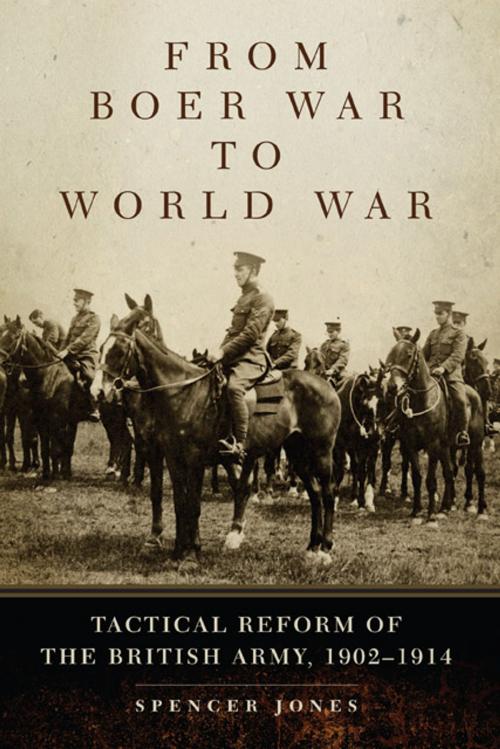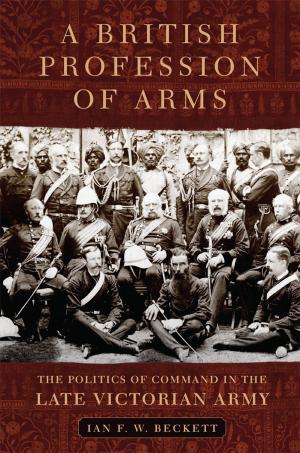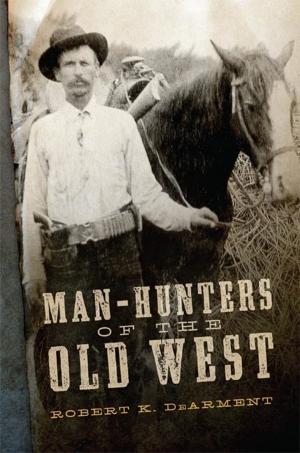From Boer War to World War
Tactical Reform of the British Army, 1902–1914
Nonfiction, History, Africa, South Africa, Military, Strategy, British| Author: | Spencer Jones | ISBN: | 9780806189611 |
| Publisher: | University of Oklahoma Press | Publication: | April 1, 2013 |
| Imprint: | University of Oklahoma Press | Language: | English |
| Author: | Spencer Jones |
| ISBN: | 9780806189611 |
| Publisher: | University of Oklahoma Press |
| Publication: | April 1, 2013 |
| Imprint: | University of Oklahoma Press |
| Language: | English |
The British Expeditionary Force at the start of World War I was tiny by the standards of the other belligerent powers. Yet, when deployed to France in 1914, it prevailed against the German army because of its professionalism and tactical skill, strengths developed through hard lessons learned a dozen years earlier. In October 1899, the British went to war against the South African Boer republics of Transvaal and Orange Free State, expecting little resistance. A string of early defeats in the Boer War shook the military’s confidence. Historian Spencer Jones focuses on this bitter combat experience in From Boer War to World War, showing how it crucially shaped the British Army’s tactical development in the years that followed.
Before the British Army faced the Boer republics, an aura of complacency had settled over the military. The Victorian era had been marked by years of easy defeats of crudely armed foes. The Boer War, however, brought the British face to face with what would become modern warfare. The sweeping, open terrain and advent of smokeless powder meant soldiers were picked off before they knew where shots had been fired from. The infantry’s standard close-order formations spelled disaster against the well-armed, entrenched Boers. Although the British Army ultimately adapted its strategy and overcame the Boers in 1902, the duration and cost of the war led to public outcry and introspection within the military.
Jones draws on previously underutilized sources as he explores the key tactical lessons derived from the war, such as maximizing firepower and using natural cover, and he shows how these new ideas were incorporated in training and used to effect a thorough overhaul of the British Army. The first book to address specific connections between the Boer War and the opening months of World War I, Jones’s fresh interpretation adds to the historiography of both wars by emphasizing the continuity between them.
The British Expeditionary Force at the start of World War I was tiny by the standards of the other belligerent powers. Yet, when deployed to France in 1914, it prevailed against the German army because of its professionalism and tactical skill, strengths developed through hard lessons learned a dozen years earlier. In October 1899, the British went to war against the South African Boer republics of Transvaal and Orange Free State, expecting little resistance. A string of early defeats in the Boer War shook the military’s confidence. Historian Spencer Jones focuses on this bitter combat experience in From Boer War to World War, showing how it crucially shaped the British Army’s tactical development in the years that followed.
Before the British Army faced the Boer republics, an aura of complacency had settled over the military. The Victorian era had been marked by years of easy defeats of crudely armed foes. The Boer War, however, brought the British face to face with what would become modern warfare. The sweeping, open terrain and advent of smokeless powder meant soldiers were picked off before they knew where shots had been fired from. The infantry’s standard close-order formations spelled disaster against the well-armed, entrenched Boers. Although the British Army ultimately adapted its strategy and overcame the Boers in 1902, the duration and cost of the war led to public outcry and introspection within the military.
Jones draws on previously underutilized sources as he explores the key tactical lessons derived from the war, such as maximizing firepower and using natural cover, and he shows how these new ideas were incorporated in training and used to effect a thorough overhaul of the British Army. The first book to address specific connections between the Boer War and the opening months of World War I, Jones’s fresh interpretation adds to the historiography of both wars by emphasizing the continuity between them.















